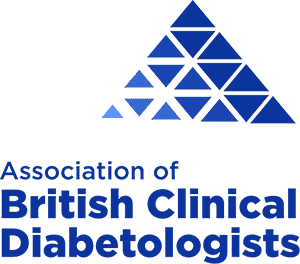Winner
Diabetes case management service: Recurrent glycaemia related re-admission prevention
by Cambridge University Hospitals NHS Foundation Trust
A new service was set up to provide social and emotional support to people with diabetes to help prevent readmissions from acute glycaemic events. The service received funding for 12 months and involved the creation of a process to identify at-risk in-patients who are then adopted into the programme. A case manager meets with the patient prior to discharge and identifies education and management issues. There is an intensive follow-up period involving home visits, telephone contact and consultant clinic review if needed, with a database of detailed information developed to allow review of progress and reaudit of outcome measures. Patients also have access to a psychological wellbeing practitioner who assesses their mental health needs and can provide psychological interventions. Analysis shows that readmissions have reduced by 60 per cent, glycaemic control and self-management has improved, and there is an estimated net saving of £91,804 per year.
Judges’ comments
“This is a great example of multidisciplinary working with strong clinical outcomes achieved in a step-by-step approach. The inclusion of mental health was really innovative. This is an example of what we should all be doing as an organisation – linking in with the wider team.”
Commended
Lambeth and Southwark Community Diabetes Services
by a partnership between Guy’s and St Thomas’s NHS Foundation Trust, King’s College Hospital NHS Foundation Trust and Crowndale Medical Centre
Specialist diabetes services were commissioned in both the London boroughs of Lambeth and Southwark, with input from healthcare staff, commissioners and patients to create new patient pathways and care settings. The services offer community-based diabetes care supporting the management of adults with type 2 diabetes and include the following interventions: multi-disciplinary diabetes community clinics (referrals from GPs and step-down from hospital), patient education, injectable therapy initiation and titration, development and training of primary healthcare teams and diabetes prevention interventions for high-risk people. Both services have been extended after successful pilot programmes.
Finalist
Bridging the gap – proving a success
by Lakeside Medical Practice, Erne Health Centre, Enniskillen
To enhance improved contact between primary and secondary care a GP clinical assistant project was established at two hospitals. GPs shadowed staff at clinics and received computer training on a managing diabetes programme. The GPs saw their own patients jointly with the hospital consultant and one GP attended a ‘diabesity’ clinic. The project also included education about new diabetes drugs. By receiving this education, diabetes patients were able to visit their GP rather than the consultant, reducing cost to the NHS and patient waiting times.
Finalist
Widespread adoption of JBDS initiated national guidelines for the improvement of diabetes in-patient care
by DISN (Diabetes Inpatient Specialist Nurse) UK Group
The Joint British Diabetes Societies (JBDS) Inpatient Care group, comprising members from Diabetes UK, ABCD and the DISN UK Group, was created in 2008 to ‘deliver a set of diabetes in-patient guidelines and proposed standards of care within secondary care organisation’. The JBDS review group prioritised guidelines to be developed by a writing and review group. So far, six evidence-based clinical guidelines have been written with five more in development. Adoption or adaption of the guidelines was more than 90 per cent for the ones written in 2010 and around 50 per cent for the more recent guidelines.














